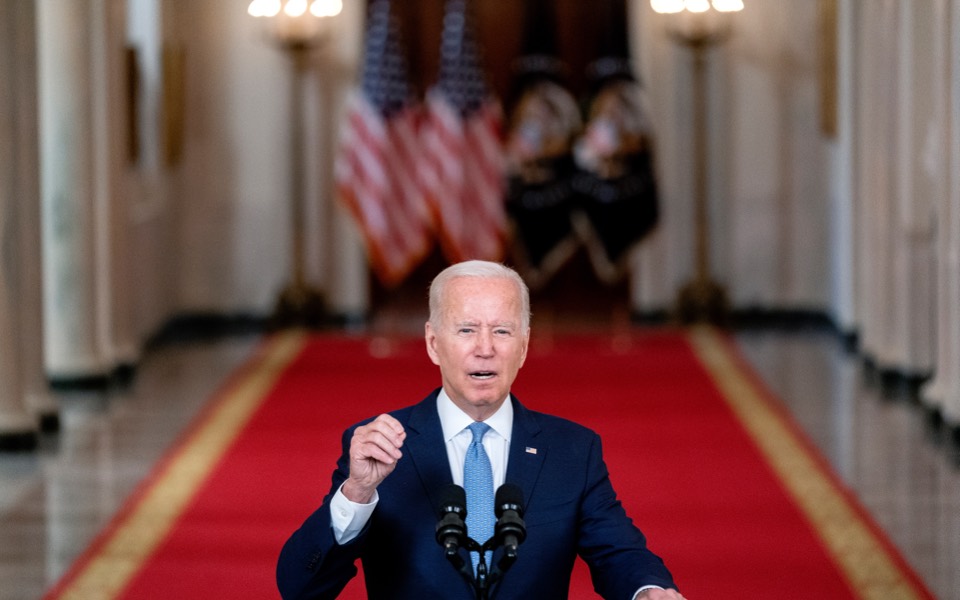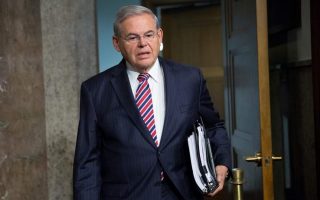Yes, Biden does have a strategy!

Soon after becoming vice president in 2009, Joe Biden told Barack Obama and the entire National Security Council that the United States should stop trying to build a feminist democracy in Afghanistan of all places, stop trying to build a national army from a pre-national population, and stop paying Pakistan more than $2 billion a year for the use of the port of Karachi and the road to Kandahar – while Pakistan was funding the Haqqani network that specialized in killing Americans.
White House staffers, and also Obama’s first Secretary of Defense Robert Gates would ridicule Biden’s repetitious perorations that simply ignored the expert consensus: Both the civilian and military chiefs in the Pentagon, backed by leading “think tank” experts, fully agreed with Generals Stanley A. McChrystal and (Dr) David Petraeus, the commanders in Afghanistan, that progress was accelerating as more and more Afghans were rejecting fanaticism to embrace progress… and they first-class experts! Petraeus would soon promulgate his counterinsurgency manual FM 3-24 (my review: “counterinsurgency as military malpractice”). On April 1, 2011 when Mazar-i-Sharif demonstrators attacked the UN Assistance Mission, killing three “Christians,” including the female Norwegian Colonel Siri Skare, after President Hamid Karzai (yes, him) had denounced a Quran-burning incident, Petraeus did not stop and pack up but instead deplored the Quran burning, and not the murders, or the responsibility of made-in-USA Karzai.
Biden’s Afghanistan problem was that he could not persuade Obama because Obama was already fully persuaded. But as a new president new to Washington, new even to politics, he simply refused to oppose the Washington consensus. It all had to wait till Biden himself became president, but by then his Afghanistan policy (evacuate) had become Donald Trump’s and so…
But in 2009 Biden’s other problem was even worse than Afghanistan: One more reason he wanted the US out of Afghanistan (and Iraq) was to focus on China as a rising threat, when very few Americans agreed with him, and none in the White House. At that very time – the worst of the financial crisis – the US was asking the Europeans, Japan and also China to pump up public spending to save the world economy that was falling into a depression. The Europeans were skeptical (“Crisis? What crisis? Just your Lehman crisis. You fix it”). Only the British responded, and the Chinese, who immediately launched road and other projects that deliberately employed tens of thousands with shovels and not just bulldozers. Obama was grateful and US Treasury Secretary Timothy Geithner was ecstatic – it took two years (!) for the Europeans to react, and even then they moved very slowly, and spent very little.
In this climate, Biden was again isolated when he pointed out that China’s helpful public spending included very fast-growing military spending that contradicted its “Peaceful Rise” policy proclaimed in 2004. Having long chaired the Senate Foreign Relations Committee, Biden heard warnings from several experts, including this writer (“The Rise of China and the Logic of Strategy,” Harvard University Press, 2012) and more importantly, Kevin Rudd, then Australia’s prime minister, who explained that China’s leaders believed that the fatal “General Crisis of Capitalism” had finally arrived. It had come too late for the USSR but just in time for the PRC to become the world’s most powerful state.
When Obama White House aides plaintively asked (the Treasury was more dignified) for fast spending from the PRC, its leaders took it as their license to assert China’s power in all directions. Of that I received a personal intimation from Vice Foreign Minister Fu Ying. She had always been a charming lady but when I met her in Beijing at the height of the 2009 financial crisis, she was almost shouting: “America is down! China is up!” When I later complained to Zheng Bijian, author of the “Peaceful Rise” policy, he replied, “Runaway horses.”
Rudd’s opinion was especially weighty because he was considered pro-Chinese (he happily speaks Chinese and even has a Chinese name, Lu Kewen). In that year, 2009, Australia published a Defense White Paper that called for a broad coalition to contain China. At the time, India’s PM Manmohan Singh refused to be diverted from the economy, Japan had its first neutralist government and Washington liked China better than Europe. It was only later that Japan’s 2010 Senkaku incident, which resulted in anti-Japanese riots, border intrusions in the Himalayas, and incidents at sea, changed everyone’s attitude. It was only at the end of 2011 that Hillary Clinton as secretary of state spoke of rotating out of the Middle East to focus on China, with Susan Rice on Obama’s staff strongly disagreeing, until Xi Jinping’s 2015 visit ended all illusions.
Again, as on Afghanistan, Biden’s China policy was anticipated by Trump, who in his own blundering way finally implemented Rudd’s coalition strategy, meeting Japan’s PM Shinzo Abe even before his inauguration, and India’s Narendra Modi as soon as he could, building up the alliances, while his White House staff cut off China from the US technology pipeline, in spite of Silicon Valley’s resistance. So it is only now that Biden can finally implement his 2009 policy – covered in opprobrium because the Afghan Army had turned out to be a fraud, exactly as he had predicted, leaving him only the cruel choice between sending troops back to Afghanistan or chaotic flight. But on China at least he has full support at home – and in every country around China except for Pakistan – which will not receive one cent more from Biden.
Edward Nicolae Luttwak is an author known for his works on grand strategy, geoeconomics, military history and international relations.





